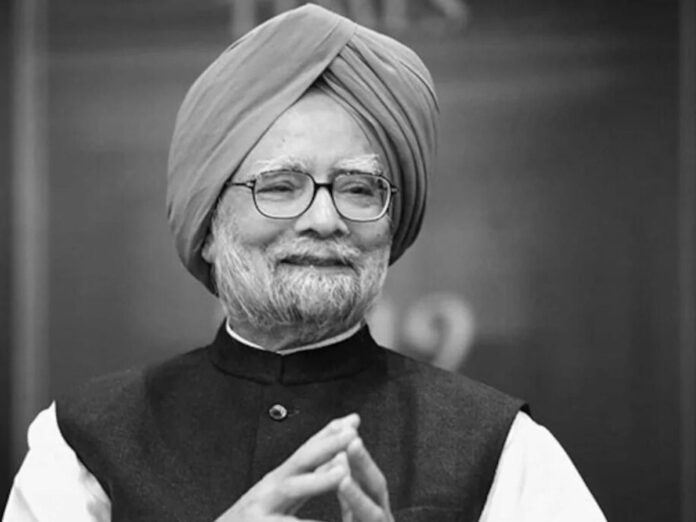
The Indian central government has declared a seven-day nationwide state mourning in honor of fallen former Prime Minister Manmohan Singh, who passed away at the age of 92.
The government announced December 27, 2024, as a state public holiday to mourn Dr Manmohan Singh’s demise.
During the state mourning period, the national flag will be flown at half-mast across all locations where it is customarily displayed with all government offices and educational institutions till December 2, 2024.
The current prime minister of India, Nahendra Modi, on December 27, 2024, while paying tribute to the fallen statesman on X, said that he was deeply saddened by the passing of ‘one of India’s most distinguished leaders, Dr Manmohan Singh Ji.’
The 92-year-old passed away after battling age-related medical conditions and died shortly after he was rushed to the All India Institute of Medical Sciences in New Delhi for emergency treatment, where he experienced a sudden loss of consciousness on Thursday, December 26, 2024.
Who was Dr Manmohan Singh?
Born into a poor family in a part of British-ruled India now in Pakistan, Singh studied by candlelight to win a place at Cambridge University before heading to Oxford, earning a doctorate with a thesis on the role of exports and free trade in India’s economy.
He became a respected economist, then India’s central bank governor and a government advisor, but he had no apparent plans for a political career when he was suddenly tapped to become finance minister in 1991.
During that tenure, to 1996, Singh was the architect of reforms that saved India’s economy from a severe balance of payments crisis and promoted deregulation and other measures that opened an insular country to the world.
Singh’s ascension to prime minister in 2004 was even more unexpected.
He was asked to take on the job by Sonia Gandhi, who led the center-left Congress party to a surprise victory. Italian by birth, she feared her ancestry would be used by Hindu-nationalist opponents to attack the government if she were to lead the country.
Riding an unprecedented period of economic growth, Singh’s government shared the spoils of the country’s newfound wealth, introducing welfare schemes such as a jobs program for the rural poor.
In 2008, his government also clinched a landmark deal that permitted peaceful trade in nuclear energy with the United States for the first time in three decades, paving the way for strong relations between New Delhi and Washington.
But his efforts to further open up the Indian economy were frequently frustrated by political wrangling within his own party and demands made by coalition partners.
He leaves behind his wife and three daughters.














